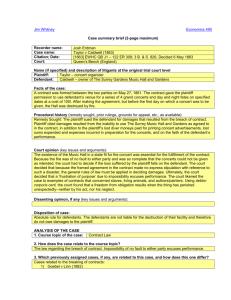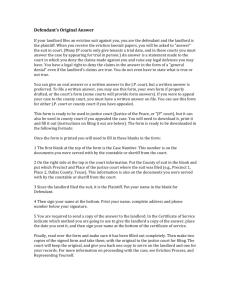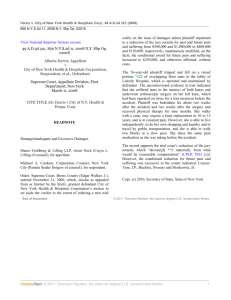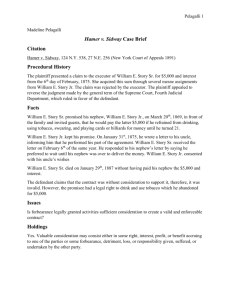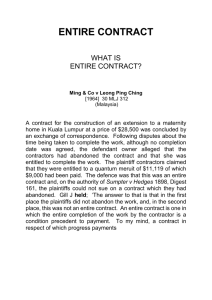1111530602_331443
advertisement
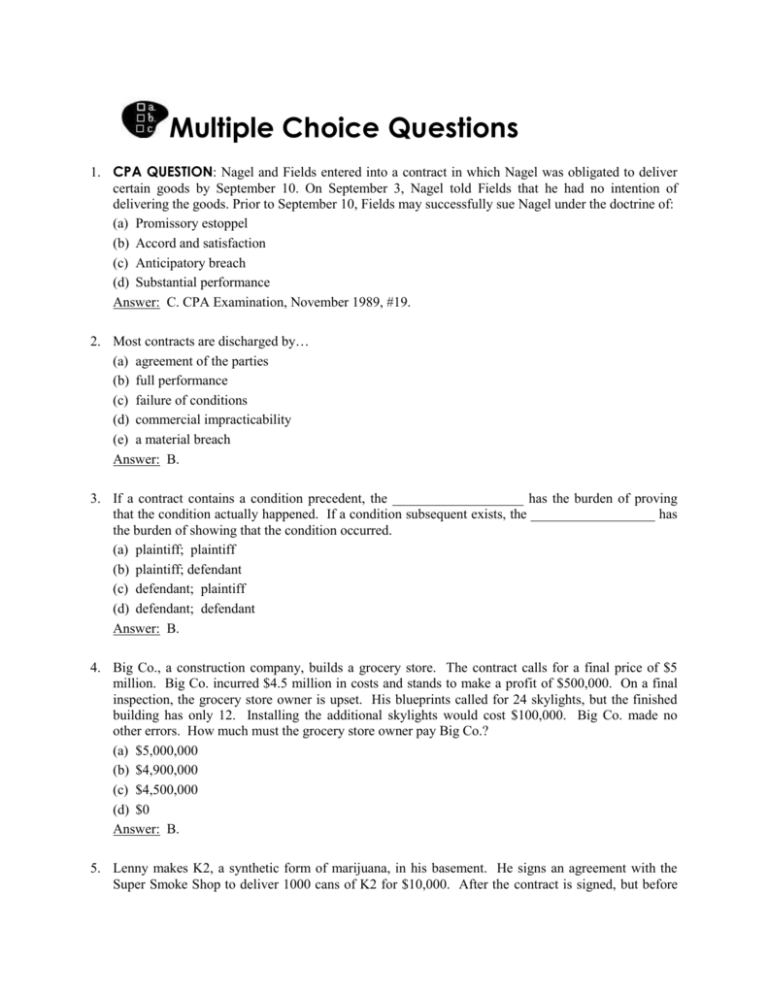
Multiple Choice Questions 1. CPA QUESTION: Nagel and Fields entered into a contract in which Nagel was obligated to deliver certain goods by September 10. On September 3, Nagel told Fields that he had no intention of delivering the goods. Prior to September 10, Fields may successfully sue Nagel under the doctrine of: (a) Promissory estoppel (b) Accord and satisfaction (c) Anticipatory breach (d) Substantial performance Answer: C. CPA Examination, November 1989, #19. 2. Most contracts are discharged by… (a) agreement of the parties (b) full performance (c) failure of conditions (d) commercial impracticability (e) a material breach Answer: B. 3. If a contract contains a condition precedent, the ___________________ has the burden of proving that the condition actually happened. If a condition subsequent exists, the __________________ has the burden of showing that the condition occurred. (a) plaintiff; plaintiff (b) plaintiff; defendant (c) defendant; plaintiff (d) defendant; defendant Answer: B. 4. Big Co., a construction company, builds a grocery store. The contract calls for a final price of $5 million. Big Co. incurred $4.5 million in costs and stands to make a profit of $500,000. On a final inspection, the grocery store owner is upset. His blueprints called for 24 skylights, but the finished building has only 12. Installing the additional skylights would cost $100,000. Big Co. made no other errors. How much must the grocery store owner pay Big Co.? (a) $5,000,000 (b) $4,900,000 (c) $4,500,000 (d) $0 Answer: B. 5. Lenny makes K2, a synthetic form of marijuana, in his basement. He signs an agreement with the Super Smoke Shop to deliver 1000 cans of K2 for $10,000. After the contract is signed, but before the delivery, Super Smoke Shop's state legislature makes the sale of K2 illegal. Lenny's contract will be discharged because of ______________________. (a) true impossibility (b) commercial impracticability (c) frustration of purpose (d) none of the above Answer: A.



